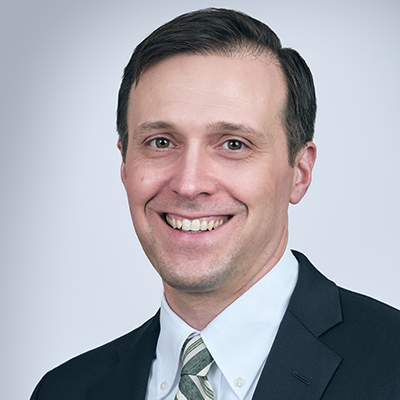
Leaving a Legacy Through Your Practice: Trust Structures for Doctors in North Carolina
Many doctors spend their lives building a medical practice that provides for their families, supports their community, and represents decades of work. But when it comes time to think about the future, many physicians in North Carolina wonder what will happen to their practice and the wealth it creates. Without careful asset protection planning, the legacy they intend to leave can be disrupted by taxes, probate delays, or even professional licensing rules.
One of the most effective tools for protecting your legacy as a doctor is the use of a trust.
Trusts are legal arrangements that allow a person (called the grantor) to place assets under the control of a trustee for the benefit of chosen beneficiaries. While this concept may sound technical or something only for mega-rich people, it can make the difference between a smooth transition of wealth and a difficult, expensive process that leaves families frustrated.
For doctors, trusts also raise special questions because North Carolina law restricts who can own a medical practice. Understanding how trusts work, where the pitfalls lie, and how to align them with professional rules is essential for preserving both the practice and the wealth it generates.
How Trusts Help North Carolina Doctors Protect Assets and Pass Down Wealth
In North Carolina, most physicians practice through professional corporations or professional limited liability companies. These entities are designed to comply with state law that says only licensed doctors can own a medical practice. That creates a challenge when trying to pass on the value of the practice to a spouse, children, or other heirs who may not be physicians themselves.
Trusts offer a way to navigate around that challenge. They cannot always hold direct ownership of a practice, but they can control how the value created by the practice flows to a family.
For example, a trust might hold real estate used by the practice, receive distributions of profits, or hold life insurance that provides liquidity when a doctor passes away.
Trusts also provide privacy, since unlike probate court filings, trust terms are not public record.
The Difference Between Revocable and Irrevocable Trusts in NC
Some doctors may have heard of revocable living trusts and irrevocable trusts but may not understand the difference.
A revocable trust is one which can be changed or revoked at any time during the grantor’s life. It is primarily used to avoid probate, keep affairs private, and simplify transfers after death. The grantor still controls the assets while alive, which means creditors, including malpractice claimants, can still reach them.
An irrevocable trust, on the other hand, cannot be easily changed once established. Because the assets are no longer under the grantor’s control, they are typically protected from creditors and excluded from the taxable estate. That makes irrevocable trusts powerful for asset protection and estate tax planning, but they require giving up control and careful structuring.
For doctors, this distinction is critical. A revocable trust is useful to avoid probate after death, but it will not shield the practice or personal assets from a malpractice judgment. An irrevocable trust may provide that protection, but it requires serious consideration before committing.
Preserving Wealth from a Medical Practice in NC
The value of a medical practice is not always in the practice itself. Doctors often own related assets like the office building, equipment, or management companies, which can be placed into trusts without violating ownership rules. For example, putting the building into a family trust ensures rental income continues to the heirs.
Others use irrevocable life insurance trusts, buying a policy equal to the practice’s value so heirs receive tax-free cash when the doctor dies. This payout does not transfer the practice itself, but it replaces its financial worth and covers estate costs.
Common Pitfalls in North Carolina Physician Trust Planning
A frequent mistake is creating a trust but never funding it, leaving it empty and ineffective. Another is trying to transfer practice shares directly into a trust, which can violate state rules if the trustee or beneficiaries are not licensed physicians.
Valuation is another stumbling block because, without a professional appraisal, the IRS may dispute the practice’s worth, causing delays and tax issues.
Finally, vague trust terms often spark family disputes, draining the estate with legal fees. Clear instructions and proper documentation prevent these problems.
Why Doctors Should Not Delay Trust Planning Until It’s Too Late
Doctors frequently put off planning because they are busy running their practice. Many assume they will deal with succession after retirement, but waiting too long creates risk.
Licensing board approvals, IRS valuation reviews, and family negotiations all take time.
If a doctor dies or becomes incapacitated before these issues are resolved, the practice may lose value quickly. Patients leave, staff move on, and the goodwill built over decades can evaporate.
Starting trust planning early ensures smoother transitions and better preservation of wealth.
Important Asset Protection Strategies for Doctors
North Carolina does not allow self-settled asset protection trusts, so doctors cannot place assets in a local trust and still benefit from them while shielding against creditors. Some look to out-of-state options like Delaware or Nevada, but those trusts are expensive and may not always hold up in North Carolina courts.
A more practical strategy is layering protection. Doctors keep strong malpractice insurance to cover patient-care claims, while moving non-practice assets such as office buildings, retirement accounts, or life insurance into an irrevocable trust. Even if a lawsuit exceeds insurance coverage, the family’s home, investments, and long-term income are much harder for creditors to reach.
By separating practice assets from personal wealth and using carefully structured trusts, physicians lower the risk that a single malpractice claim could erase decades of work. Trusts may not eliminate all risk, but they provide an essential safeguard alongside insurance.
Succession Planning for Medical Practices
If the doctor passes away unexpectedly, the practice may shut down without a licensed owner. A trust alone cannot solve this, but it can work in combination with buy-sell agreements or pre-arranged sale plans.
For group practices, coordinating trust terms with shareholder agreements ensures continuity.
A common question is whether children can inherit the practice. Unless they are licensed physicians, they cannot directly own the professional entity. However, they can benefit financially through trusts that hold related assets or receive sale proceeds.
This makes trust planning essential for families that want to preserve value even if no child follows in the parents’ professional footsteps.
Tax Implications of Trust Structures for Physicians in NC
North Carolina has no state estate tax, but the federal estate tax still applies. The current exemption is high, yet many successful physicians and practice owners can exceed it once practice value, real estate, retirement accounts, and life insurance are added together. Trusts help reduce that exposure by moving assets outside the taxable estate.
Gift taxes are another concern if transfers are mishandled. Annual exclusion gifts ($19,000 per recipient) can fund trusts for children or grandchildren without triggering tax, as long as documentation is in order.
Life insurance trusts are especially useful for covering estate taxes or providing liquidity. If a practice must be sold quickly after death, it may not fetch full value. Insurance proceeds in a trust give heirs cash to pay expenses and time to secure the right buyer.
Challenges Unique to North Carolina Trust Planning for Doctors
Because only licensed physicians can own practice interests, trusts in North Carolina must be drafted carefully. A spouse or child who is not a physician cannot simply take over shares. Instead, practice agreements often require that, upon death, the corporation itself buys back the shares using cash or insurance and pays the value to the estate. A trust can then receive those proceeds.
Another challenge is coordinating with the North Carolina Uniform Trust Code, which sets out requirements for validity, trustee powers, and beneficiary rights. Failure to comply can lead to court challenges.
Doctors sometimes try to use generic trust forms found online, but these rarely address the special combination of medical licensing restrictions and state trust law.
Common Costly Mistakes in NC Trust Planning for Medical Practices
Many costs in trust planning are preventable. Using an experienced valuation expert avoids IRS disputes. Properly documenting annual exclusion gifts prevents avoidable gift tax.
Aligning trust terms with practice agreements avoids conflicts between family and business partners. Even simple steps, like keeping life insurance policies inside an irrevocable trust, can prevent unnecessary estate tax.
Doctors sometimes spend large sums setting up out-of-state asset protection trusts when simpler strategies would suffice. While these trusts have their place, they are not always necessary for North Carolina physicians whose primary concern is probate avoidance, tax reduction, or family protection.
A clear plan tailored to the doctor’s actual assets and risks is usually more effective and less expensive.
Frequently Asked Questions about Trust Planning for Physicians
How do you set up a trust for a medical practice in North Carolina?
Choose a revocable or irrevocable trust and have it drafted under North Carolina’s Uniform Trust Code. Because only physicians can own practices, the trust usually holds related assets like real estate or insurance, while the practice itself is transferred through a sale or buy-sell agreement.
What happens to a medical practice when a doctor dies in North Carolina?
If the doctor was the sole owner, the practice cannot pass to non-physician heirs. Shares are usually sold to another doctor or redeemed by the corporation, with the family receiving the proceeds or equivalent insurance funds.
How can you pass down a medical practice to children in North Carolina?
Licensed children can inherit ownership. For those who are not physicians, the practice is typically sold, and trusts or insurance are used to pass along its financial value.
How does legacy planning work for doctors with blended families in North Carolina?
Trusts can give income or assets to a current spouse while preserving principal for children from a prior marriage. Clear terms prevent disputes and balance competing interests.
What are the pitfalls of leaving a medical practice to heirs in North Carolina?
Non-physicians cannot inherit ownership, undervaluing the practice creates tax issues, and vague instructions often spark family disputes.
What are the most common mistakes in North Carolina physician estate planning?
Failing to fund trusts, relying only on a will, ignoring malpractice risk, and using generic forms that don’t meet state rules.
What’s the best type of trust for North Carolina doctors?
Revocable trusts avoid probate, irrevocable trusts protect assets and reduce taxes, and life insurance trusts provide liquidity or replace practice value. Many use a mix.
How can you keep a medical practice running after death in North Carolina?
Solo practices need buy-sell agreements with other physicians, while group practices continue under partnership agreements. Without planning, practices may shut down.
How can doctors in North Carolina avoid probate?
Revocable living trusts, updated beneficiary designations, and joint ownership help transfer wealth smoothly and keep assets out of probate.
Can a family trust own a medical practice in North Carolina?
No. Only licensed physicians can own a practice. A family trust can hold related assets, but the practice itself must be sold or transferred to another doctor.
Building a Lasting Legacy as a Doctor in NC
Trusts are not one-size-fits-all, and the right structure depends on each doctor’s goals, whether that’s preserving wealth for children, supporting a cause, or avoiding probate delays. With early planning, proper funding, and coordination with practice agreements, doctors in North Carolina can create plans that reflect their wishes while meeting state requirements.
Because physicians face unique hurdles like ownership restrictions, malpractice exposure, and family dynamics, trust planning is both more complex and more essential. With the right approach, a medical practice and the wealth it generates can be protected for future generations.
Schedule a free initial 15-minute consultation to get clear answers about preserving your medical practice and securing your legacy in North Carolina.

